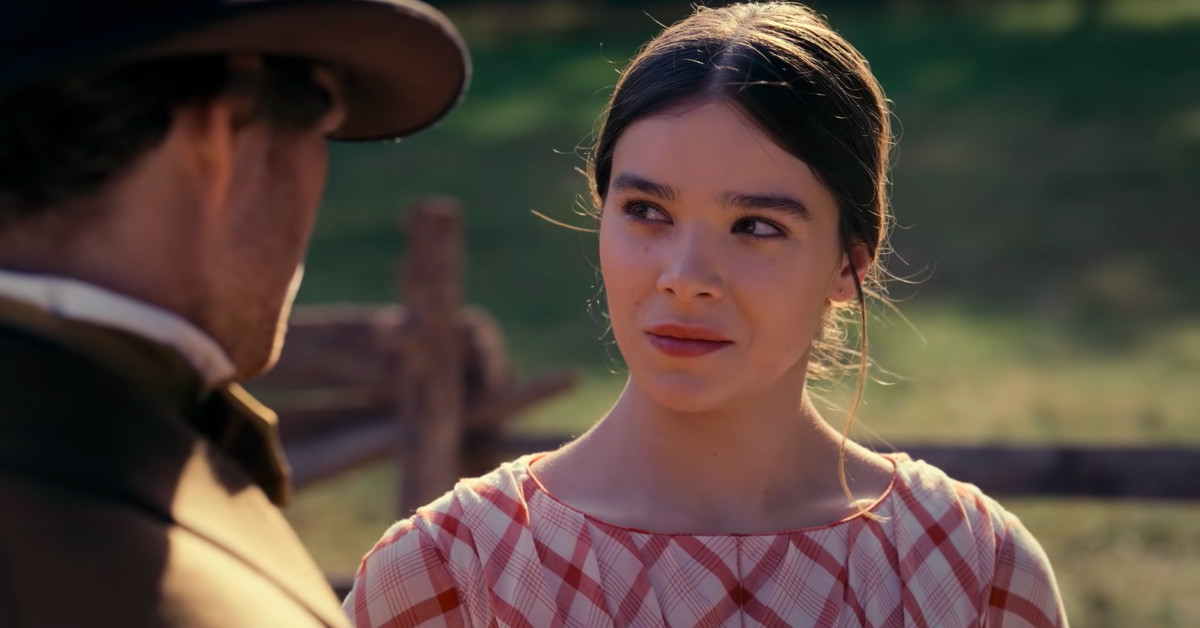
Writing is often the domain of obsessives, and Emily Dickinson — at least, the witty, chaotic version of her portrayed by Hailee Steinfeld on Apple TV Plus’ Dickinson — gives herself over to her obsessions fully. In the first season of the show, which is an irreverent, Riverdale-style take on the life of the famed young poet, her obsession was Death, played by Wiz Khalifa. (Like I said: irreverent.) In the latest season, Steinfeld’s Emily is obsessed with fame. Lovers of dramatic irony have a lot to dig into here.
The new season of Dickinson is a lot like the first: equal parts over-the-top comedy and earnest teen soap. But this time around, the show has a touch more restraint. It keeps the outrageous excess — Dickinson’s second season is still an anachronistic comedy whose teens behave as if they were in a modern CW soap, while its adults are all caricatures of 19th century historical figures — but it builds in a little more self-control.
In the show’s first season, the ethos of transgression for transgression’s sake resulted in some moments of poor taste; the show, which is about teens in white middle-class Amherst, would frequently drop hip-hop beats to underline how edgy they were, for example. The series often undermined its irreverence by calling too much attention to it, and if there’s one big improvement in what’s been shown of season 2 so far — the first three episodes of which are streaming now — it’s in that particular regard. In season 2, Dickinson is content to merely be the show it is: which is, in fact, pretty great.
In the second season’s premiere, Dickinson breaks the proverbial fourth wall and addresses the viewer directly, calling attention to the difference between the show and the actual history of Emily Dickinson’s life. It notes, curiously, that the story is moving into a portion of Emily’s life that is not as well-documented: the start of what would be a 30-year seclusion where the only thing scholars know she did for sure was write, and write a lot. Future episodes may or not make this clear, but this kind of prologue makes you wonder about the show’s intent. Dickinson is a tongue-in-cheek retelling of history that’s already inventing a lot. What might noting the ambiguity of historical record signal? More departures from history?
And so Dickinson’s new season wrestles with what could have been. Emily is tempted to forgo her longstanding practice of writing only for herself and her friend and former paramour Sue — who’s now in a troubled marriage with Emily’s brother Austin — and she’s entertaining the thought of being published. Meanwhile, new players enter. Samuel Bowles (Finn Jones), the editor of the Springfield Republican, might have an interest in publishing her.
Returning characters have their storylines develop. Henry (Chinaza Uche), a Black man who does work for the Dickinsons, for example, is starting to secretly publish and organize Amherst’s Black community. This is all to say that the second season of Dickinson is starting to make a more pronounced effort to be more than a progressive take on a white woman’s story, albeit one played by an actor of color. It seems to have ambitions to be a progressive and very funny take on the era as a whole, and that makes the world of the show even richer.
In Dickinson, Emily’s world is expanding, even as we know from history that tragedy looms. Soon, she will recede from the world; soon, the nation will split in two and erupt in open warfare; and soon, all of these young people will find their perceptions of their equally young nation challenged.
It’s the sort of thing Emily would write a poem about.
https://www.theverge.com/22225510/dickinson-season-2-review-apple-tv-plus

